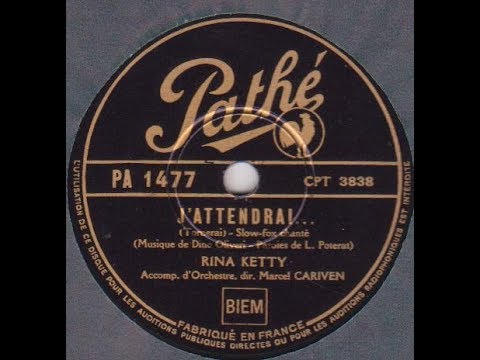This week, I’ll be sharing a new song each day to remind you (and myself) that how we use this time at home is as varied and limitless as our collective imagination. There’s at least one song, if not hundreds, for everything we’re experiencing in this singular moment, and it wasn’t easy to pick five! But I hope my choices delight, inspire, move, and comfort you, as they do me.
Waiting…
The Humming Chorus from Puccini’s Madama Butterfly inspired this 1937 song, originally titled, “Tornerai” (“You will Return”). Written by opera conductor and composer Dino Olivieri and lyricist Nino Rastelli, it was a modern take on the idea of lovers separated during wartime. The song (which uses only a fragment of Puccini’s melody), was an enormous hit.
With new French lyrics by Louis Potérat, the song was refashioned as “J’attendrai” (“I will wait”), and had even more success in France than “Tornerai” did in Italy. There were several French and Belgian recordings of the song, but the one by Italian singer Rina Ketty, was the most beloved.
After the Nazi occupation of France in 1940, “J’attendrai” came to represent for many another kind of waiting, one for the return of normal life, and for liberation. As more countries became involved in the war, the song increased in popularity. Soon there were versions in German, Danish, Norwegian, Polish, Czech, Lithuanian, and two different ones in English. But of them all, including the original, “J’attendrai” was always the clear favorite.
“J’attendrai”
Music: Dino Olivieri (1905-1963)
French Lyrics: Louis Potérat (1901-1982)
Performed by Rina Ketty and Orchestre Michel Cariven




Hi. Were there any repercussions for French people if they sang, J’attendrai” during the German occupation? I understood that this song was so powerful that the Germans inflicted punishment if the caught anyone singing it – maybe this was just a baseless story, but I’d like to know if it has any truth to it. Greg.